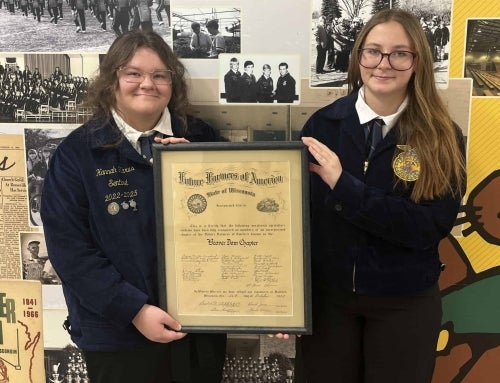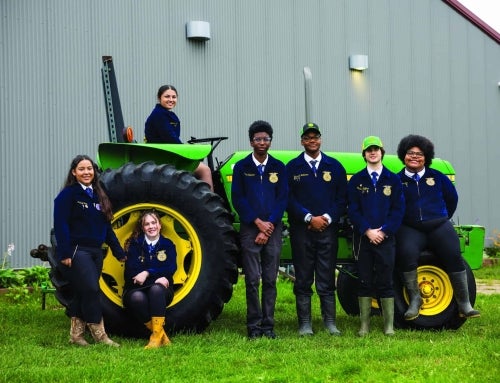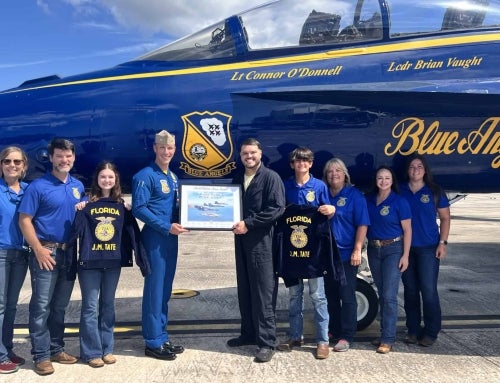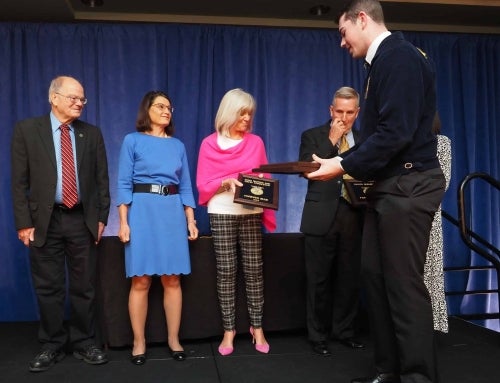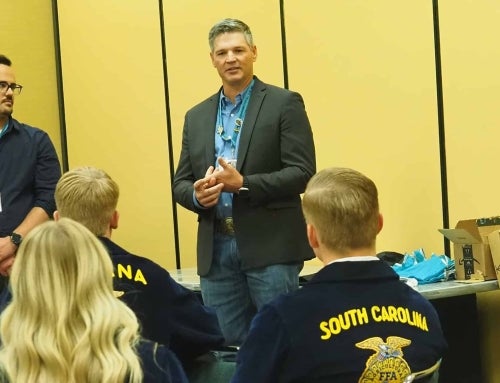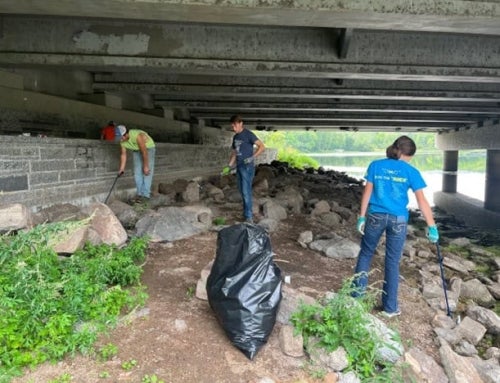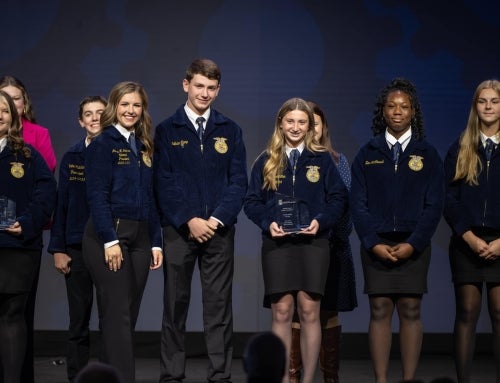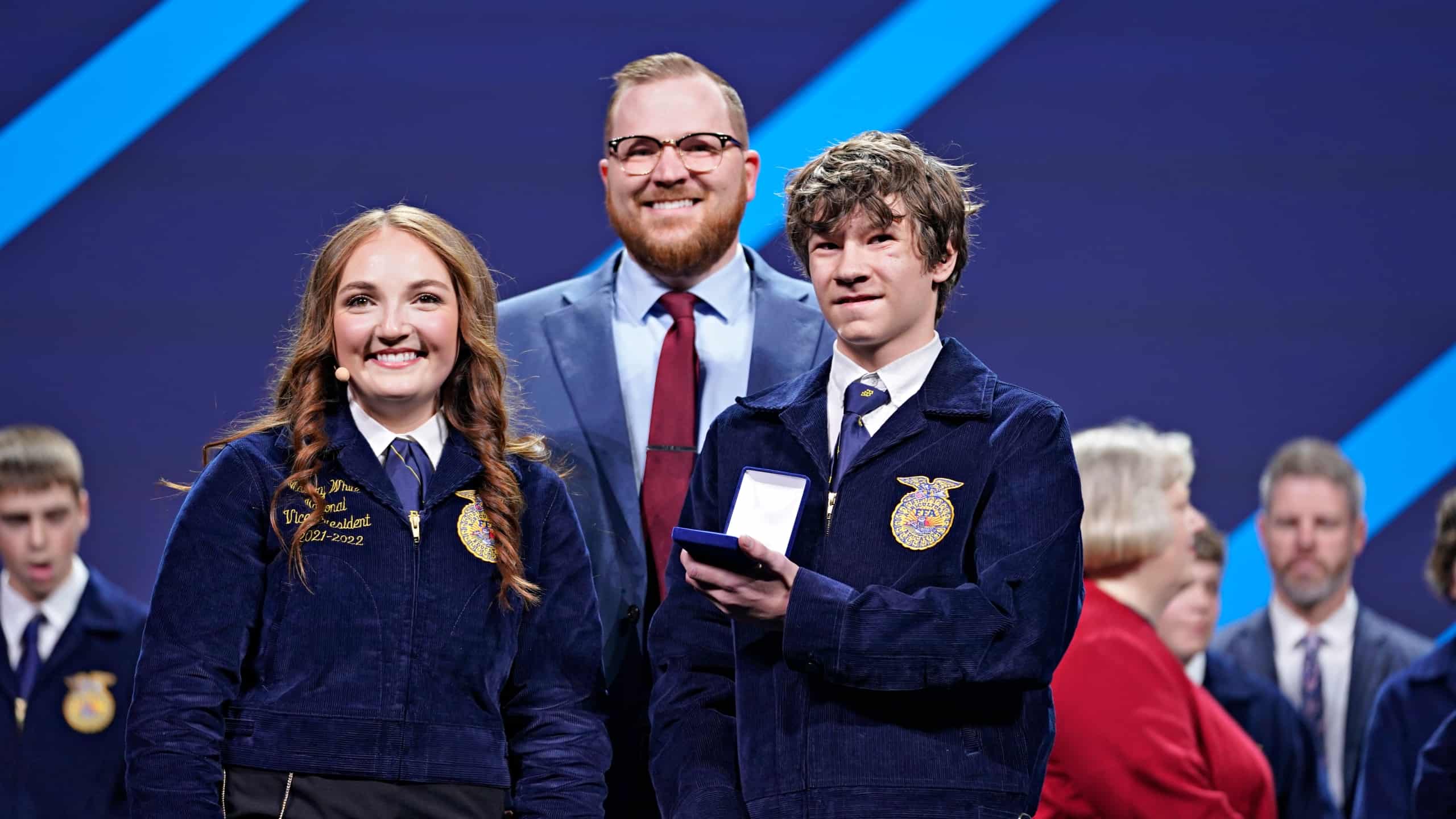
Ryan Squires isn’t afraid to get his hands dirty.
“Whenever I can run an experiment, I do,” he says.
The up-and-coming scientist developed a fascination for science as a child when he used baking soda and vinegar to create chemical reactions. As his understanding of science expanded, so did his interest in testing new theories and developing solutions to global issues.
“It’s great to know the science that’s behind something, but in order to actually apply it, you have to be able to build something to test it,” he says. “I’d like to be able to do both.”
Squires, a freshman at North Scott High School in Eldridge, Iowa, might not be a traditional ag student but his agricultural education teacher, Jacob Hunter, believed his interests were a perfect fit for the North Scott Middle FFA Chapter.
“I believe that school-based agricultural education is the best vehicle for empowering our students to take on these great challenges that we have in front of us,” Hunter says. “It’s our FFA members that are going to be doing the work to help feed the world and fight climate change.”
Award-Winning Research
In 2022, Squires tested which types of rocks were best for carbon mineralization for his FFA Agriscience Fair project. He gathered five rock types and stored them in a pressure vessel filled with carbon dioxide; after 420 hours, he removed the rocks, weighed them and compared the changes in their mass to control rocks to determine which rock types had sequestered the most carbon dioxide.
“Climate change is happening and I wanted to look at ways we could combat it,” he says. “[Carbon mineralization] was an unexplored phenomenon and testable…so I decided to focus on that vein of science and carbon sequestration.”
The project won first place in the 2022 National FFA Agriscience Fair Environmental Services/Natural Resource Systems event for individual members in grades seven and eight.
For his next big project, Squires wants to explore eco-friendly ways to launch rockets that will allow for continued space exploration with less impact on the environment.
Squires knows his experiments won’t always be successful, but that’s part of the learning process. He hopes other FFA members will take a similar approach to following their passions.
“Even a project that seems small and unimportant is a stepping stone,” he says. “You may not be the one that gets the breakthrough, but someone else may look at your research and pick it up where you left off…and, together, we will eventually get to a conclusion that will help all of us.”
A fair fit?
Are you interested in using scientific principles and emerging technologies to solve complex problems related to agriculture, food and natural resources? Then the National FFA Agriscience Fair might be a fit for you. Learn more at FFA.org/AgriscienceFair.


